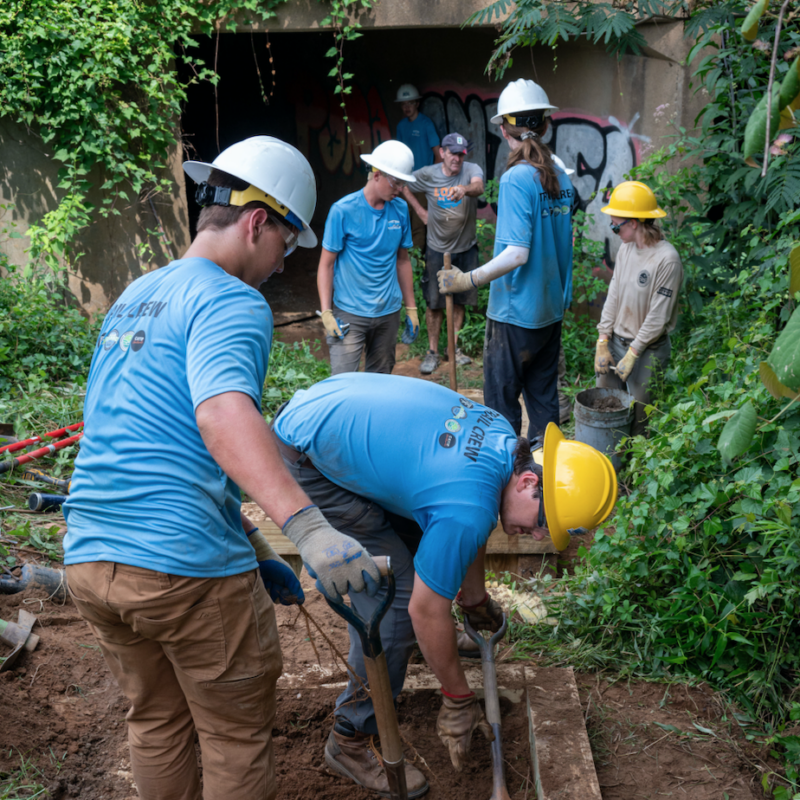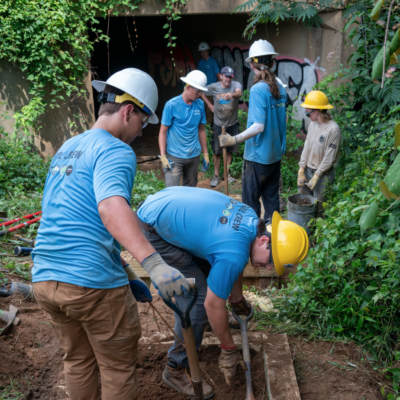Love them or hate them, Charlottesville and Albemarle police officers need a place to live. So do teachers. And social workers. The list goes on, and anyone who’s tried to live in the area knows that doing so on a $30,000 salary isn’t easy.
| Previous coverage:
Protecting the salt of the earth |
But thanks to the Albemarle Housing Improvement Program (AHIP) and the Charlottesville Area Community Foundation (CACF), there will be more low- to middle-income housing available. CACF planned to announce December 4 the first installment of its new Catalyst Grant, its largest single grant to date. AHIP will receive $75,000 for its Treesdale Park project, which will add 90 units to the area’s affordable-housing pool.
For the next three years, CACF will help fund programs dedicated to the issue of affordable housing. After that, CACF will choose a new focus for the grant, created in part because of CACF’s growth. Its assets, in the last four years, have more than tripled to $65 million from $20 million.
"We’ve grown to a level of sophistication in our grant-making program where we felt like we were ready to take this thoughtful, researched approach," says CACF President John Redick. "It seemed like the right time in our evolution. That would have not been true three or four years ago."
 "We’re going to use as many green and sustainable practices and materials as we possibly can," says Theresa Tapscott, AHIP’s executive director. |
The issue of affordable housing, he says, is "an issue that’s seizing the community in a lot of different ways." Looking at AHIP’s track record in addressing area housing needs, the CACF board decided to back its Treesdale project.
Treesdale is set to include three buildings of 30 units each, plus a multilevel community center that will include meeting spaces, a computer lab, daycare and after school programs. According to Theresa Tapscott, AHIP’s executive director, the key piece of financing for Treesdale would come from the federal Low Income Housing Tax Credit program. AHIP will submit an application for the program by February 15.
"It is competitive," says Tapscott about the program. "It’s based on some factors within our control and some outside our control."
One of the factors sure to help its application is the community support shown by the CACF grant. Another is the project’s "green" features.
"We’re going to ensure that it’s Earth Craft certified," Tapscott says. "We’re going to use as many green and sustainable practices and materials as we possibly can. A lot of that, of course, will ultimately depend on the amount of financing we can get."
C-VILLE welcomes news tips from readers. Send them to news@c-ville.com.





